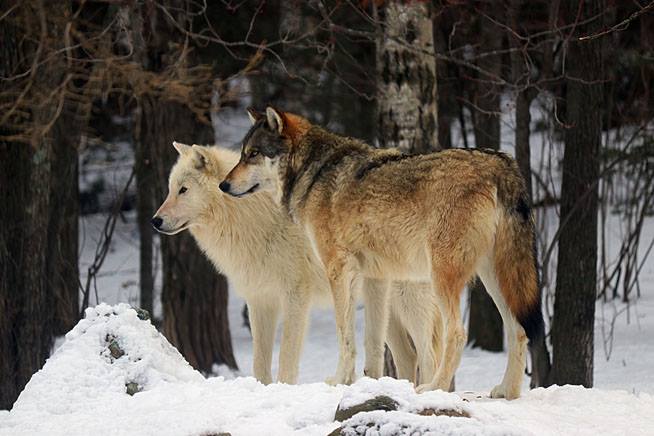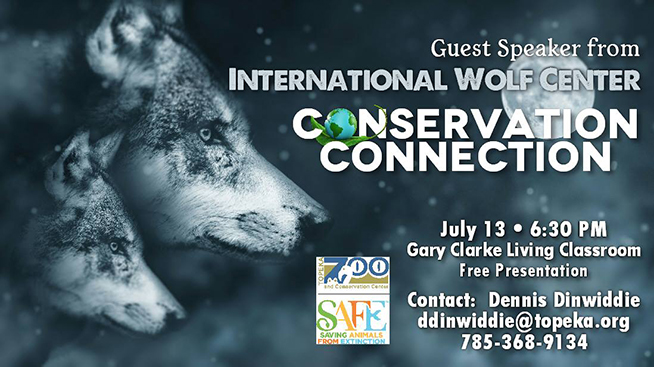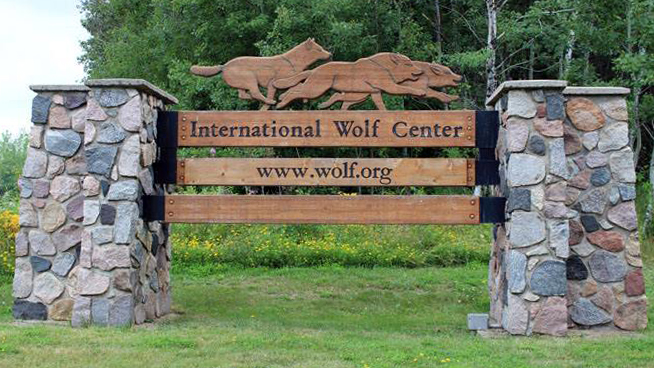
Wolves once roamed our nation and most of the northern hemisphere by the millions. However, by the early 20th century they had been reduced to near extinction from habitat loss and persecution by humans. Now, this majestic and revered creature occupies space in only 6% of the lower forty eight. Levels of protection were put into place which allowed some wolf populations to increase, but left them still fighting for survival. Today, wolves continue to spark intense emotions among humans who either love them or hate them, but seldom understand them. Because of this, the future of wolves remains in question and under threat.
This Thursday (7/13/17) The Topeka Zoo hosts Rob Schultz, Executive Director of the International Wolf Center, based in Ely, Minnesota. Rob will speak on the status of wolves today, the challenges they face, and what is being done to save them. Zoo gates will open at 6:15 for this FREE event, with the presentation beginning at 6:30.

The International Wolf Center advances the survival of wolf populations by teaching about wolves, their relationship to wildlands and the human role in their future. The Center and its members envision a world where populations of wolves thrive, well distributed, in many parts of their native range. A global system of designated wildlands supports abundant habitat and prey for wolves and other large carnivores.

The Center provides useful scientific information and learning opportunities to diverse individuals and groups and supports well-informed dialogue about management of wolf-human conflict. As a result, humans adopt an attitude of respect toward wolves. As informed participants, humans create policy and act in support of ecological sustainability, which includes the survival of wolf populations. In day-to-day life, humans accept co-existence with wolves.








